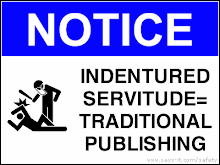Status: Currently writing on The Price of Freedom--Chapter 187.
Doing: Writing this blog; surfing the net; answering e-mails; working out.
Watching: Talk show re-runs
Listening to: "One Love" by Prodigy; "Head Like A Hole" by Devo
Reading: Kushiel's Scion by Jacqueline Carey
TOPIC: STRIKE CONTINUES
The writer's strike enters its fourth week; and temperatures here are in the low 30s.
Striking screenwriters disparage new studio offer
LOS ANGELES (Reuters) - Labor negotiators for the major Hollywood studios presented striking screenwriters on Thursday with a new set of proposed pay formulas for digital media, but the writers' union immediately rebuffed the offer as far too stingy.
Breaking their silence after a four-day round of talks conducted under a strict media blackout, the two sides resumed their public relations duel as the studios unveiled what they called a "new economic partnership" and the writers shot it down as a "massive rollback."
The latest offer was disclosed in a brief statement issued by the studios' bargaining entity, the Alliance of Motion Picture and Television Producers (AMPTP), on the 25th day of a strike by 10,500 film and TV writers.
The Writers Guild of America launched its work stoppage on November 5 after months of rancorous on-and-off negotiations with the studios collapsed, triggering the worst labor crisis to hit Hollywood in nearly 20 years.
The talks have foundered largely on the failure to reach accord on writers' demands for a greater share of revenue for film and TV work distributed over the Internet and wireless devices, such as cell phones.
The new offer presented by the studios, according to the AMPTP, sought to address those issues with "groundbreaking moves in several areas of new media."
"The entire value of the New Economic Partnership will deliver more than $130 million in additional compensation above and beyond the more than $1.3 billion writers already receive each year," the statement said.
But the proposal met with a chilly reception from the union, which outlined its objections to the studios' offer in its own point-by-point critique.
For example, the union said the studios had offered a single, fixed payment of less than $250 for a year's reuse of an hourlong TV program when streamed over the Internet, which the WGA said compared with "over $20,000 payable for a network rerun."
The union also faulted the studios' offer for failing to establish a payment scheme for original content created especially for the Internet, and for refusing to go beyond management's initial proposal to pay the same rates for digital downloads as for DVDs.
The guild said its own proposals would cost the film and TV industry $151 million over three years, amounting to a 3 percent increase in writers' earnings annually, while "company revenues are projected to grow at a rate of 10 percent."
Both sides said they would resume bargaining next Tuesday, and the union said the studios have promised to present additional unspecified proposals at that time.
The latest four-day round of talks marked the first formal negotiations since the strike began.
The screenwriters' walkout has hit the television industry the hardest so far, throwing late-night talk shows into immediate reruns and bringing production to a halt on dozens of prime-time comedies and dramas.
The strike has also forced movie studios to postpone several high-profile big-screen projects, including a planned sequel to the box-office blockbuster "The Da Vinci Code."
The last Hollywood strike was a 1988 walkout by the WGA that lasted 22 weeks and cost the entertainment industry an estimated $500 million.
Not your typical writer's blog.
Support your local author! ^_^
About Me

- Schuyler Thorpe
- Married 6 years. Have plenty of pets--as substitutes for the kids until the day they are born. Though I was born with cerebal palsy, I don't let that slow me down or stop me.